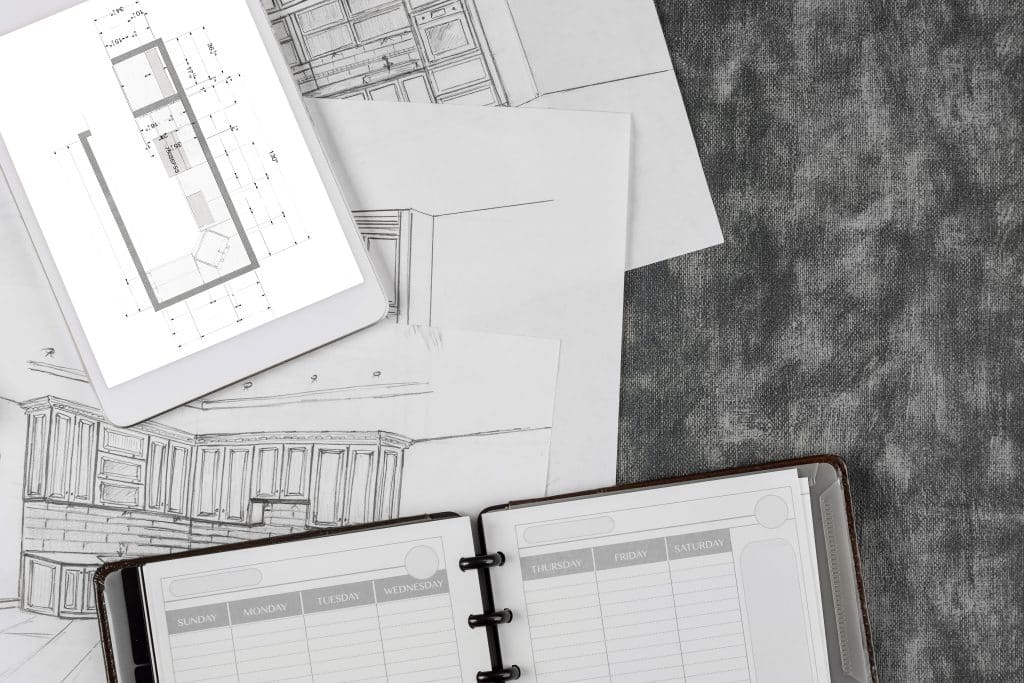Stepping into a newly remodeled home should be a moment of pure joy and satisfaction. However, that dream can quickly turn into a costly nightmare if you’re not careful. From budget overruns to design flaws, there are numerous pitfalls to avoid when remodeling. This post aims to be your guiding light, offering insights into the common mistakes that can derail your project. By the end of this read, you’ll be well-equipped to navigate the complexities of remodeling, ensuring that your project is both successful and fulfilling.
Contents
Ignoring The Budget

The excitement of a remodeling project often comes with the temptation to splurge on high-end materials and luxurious finishes. While it’s natural to want the best for your home, failing to stick to a budget can lead to financial strain. It’s crucial to set a realistic budget that accounts for both your desires and your financial limitations.
A budget isn’t just a financial ceiling; it’s a roadmap for your project. It helps you prioritize what’s essential and what’s optional. And don’t forget to set aside a contingency fund. Unexpected costs are almost a given in any remodeling project, and a contingency fund acts as a financial cushion, preventing you from going overboard with your spending.
Not Vetting Contractors

You’ve set your budget, and you’re eager to get started. The next logical step is hiring a contractor, but this is not a decision to be made lightly. A poor choice can result in shoddy workmanship, delays, and even legal issues. Always check credentials, read reviews, and ask for references before making your choice.
A written contract is your safety net in any professional relationship. It should outline the scope of work, the cost, and the timeline, among other things. A contract not only protects you but also sets clear expectations for your contractor. This way, both parties know exactly what is expected, reducing the chances of misunderstandings and disputes.
Overlooking Design Functionality

A beautiful design can catch your eye, but if it doesn’t serve its functional purpose, it can become a daily inconvenience. For instance, a kitchen island may look stunning, but if it obstructs the flow of traffic, it will soon become a nuisance. Always consider the functionality of your design choices, not just their aesthetic appeal.
Thinking long-term is equally important. Those steep stairs may not be a problem now, but they could become a significant issue as you age. The same goes for high cabinets or deep bathtubs. Always consider how your needs might change over time and plan your design accordingly.
Choosing Low-Quality Materials

It’s tempting to cut corners by opting for cheaper materials. After all, some of those price tags can be eye-watering. However, low-quality materials can lead to a host of problems down the line, from premature wear and tear to potential safety hazards. Investing in quality materials pays off in the long run, both in durability and in your home’s resale value.
Warranties are another factor to consider when choosing materials. A good warranty can save you a lot of trouble and money in the long run. It’s not just about the upfront cost; think about the longevity and durability of your choices. Quality materials may be more expensive initially, but they often prove to be more cost-effective when you factor in their lifespan.
Unrealistic Timeframes

The excitement of seeing your remodeled home can make you overly optimistic about how long the project will take. It’s common for homeowners to underestimate the time needed, leading to frustration and sometimes additional costs. Delays can occur for various reasons, from weather conditions affecting construction to unexpected structural issues that need addressing.
Patience is more than a virtue in remodeling; it’s a necessity. While it’s frustrating to see deadlines slip, understanding that delays are often part of the process can help manage your expectations. Always add a buffer to your initial timeframe to account for unforeseen circumstances, ensuring a less stressful remodeling experience.
Neglecting Small Details

When focusing on the big picture, it’s easy to overlook the small details that make a home functional and comfortable. For example, the placement of electrical outlets, light switches, and even doorknobs can significantly impact your daily life. These might seem like minor considerations, but they can make a world of difference in the long run.
Attention to detail extends to the finishes and fixtures you choose. The type of knobs on your cabinets, the finish on your faucets, and even the grout color for your tiles contribute to the overall look and feel of your home. Neglecting these elements can result in a disjointed design that lacks cohesion.
Failing To Consider Resale Value

Your home is your sanctuary, but it’s also an investment. While personalizing your space is important, going too far can make your home difficult to sell in the future. For instance, converting a bedroom into a specialized media room may suit your needs now but could deter future buyers looking for more traditional layouts.
When making remodeling decisions, consider their impact on your home’s resale value. Opt for improvements that have a high return on investment, such as kitchen and bathroom upgrades. This doesn’t mean you can’t infuse your personality into your home; it simply suggests balancing your desires with broader market appeal.
Forgetting About Permits

It’s easy to get caught up in the excitement of remodeling and forget about the legal aspects. However, neglecting to secure the necessary permits can lead to significant problems, including fines and the potential need to undo completed work. Permits are not just bureaucratic red tape; they ensure that your project meets safety and zoning regulations.
Ignoring permits can have long-term repercussions, including difficulties when you decide to sell your home. Always consult with your contractor about the types of permits you’ll need for your project. It’s better to spend time securing permits upfront than to face legal issues later on.
Follow This Blueprint For Remodeling Success!
Navigating the complexities of a remodeling project can be daunting, but knowledge is your most valuable tool. This guide has aimed to equip you with the insights needed to make informed decisions and avoid common pitfalls. As you embark on this transformative journey, keep these crucial considerations in mind. They won’t just save you time and money; they’ll also pave the way for a successful, satisfying remodeling experience!



